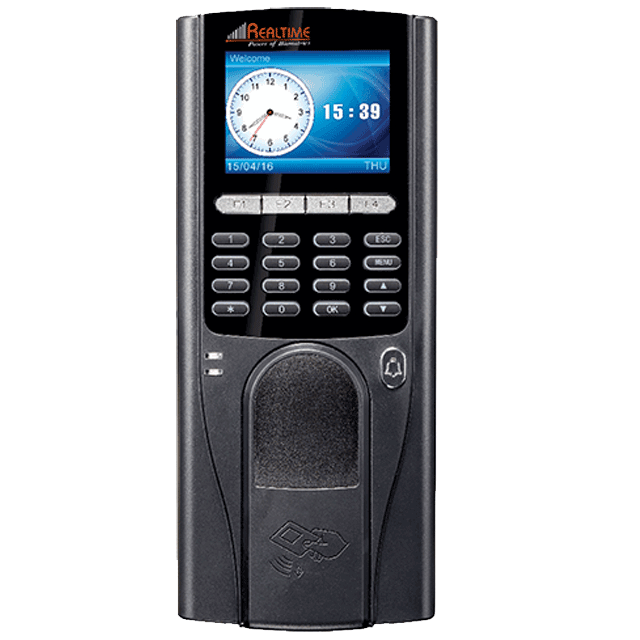RFID based Door Access Control T61C | Realtime
RFID based Door Access Control T61C has been designed and developed by Realtime Biometrics. Securing your premises is essential, and RFID-based door access control systems provide a safe and reliable method of doing so. From controlling entry to monitoring who accesses which areas in your building, find out more about the features, benefits, and considerations of using an RFID-based door access system.
What is RFID Technology?
RFID based Door Access Control Radio-frequency identification (RFID) is a wireless technology that uses electromagnetic fields to track and identify items. It is used in a variety of applications, including digital payments, agriculture, supply chain management, and access control systems. RFID technology provides an efficient way to control access and monitor movements within premises.
Features and Benefits of RFID Access Control Systems
RFID based door access control systems offer a variety of features, benefits, and considerations. From providing secure authentication through individual tracking of entrances and exits to advanced analytics, RFID technology can help improve security and efficiency in your facility.
With features like electronic locks, biometric readers, and integrated alarms, you can greatly reduce the risk of unauthorized entries and protect sensitive areas from potential threats. An RFID-based system also provides real-time visibility into who has accessed which areas at any given time.
Types of RFID Card Doors
RFID based door access control comes in several types to fit your specific needs. They range from traditional plastic cards with an embedded chip for quick access, to more sophisticated biometric scanners that can measure fingerprints or facial features.
Each type of RFID card has its advantages and disadvantages, so it’s important to consider all options before making a decision. You should also assess the risks and analyze the cost-benefit of each type of card door access system before implementing it at your facility.
Maintaining an RFID System
Maintaining an RFID based door access control system is easy and simple. A good maintenance protocol will ensure the system continues to work as intended while helping to detect any unauthorized use. Regular maintenance includes reading access logs regularly, replacing batteries regularly, and conducting quarterly system tests to check performance.
If any suspicious activity is noticed, the administrator should be notified promptly so action can be taken if necessary.
Considerations Before Implementing an RFID System
Installing an RFID based door access control system requires careful planning. Careful consideration should be given to the type of doors being installed, the physical environment of each door, associated access points such as windows and gates, and whether additional storage hardware will be required for data logging.
In addition, it is important to determine how the system will be powered and whether power backups will be necessary in case of power failure or interruption. Factors such as cost, security requirements, intended use, and applicable regulations must also be taken into account.
Product Specifications:
| Card User : | 10,000 |
| Password User : | 10,000 |
| Attendance Records : | 100,000 |
| CPU : | 32bit CPU |
| Multi-device Related : | Max. 255units |
| Card reader : | EM type ID card reader (option: Mifare reader) |
| Display: | 2.4 inches (Color Display) |
| LED : | Two(Red, Blue) |
| Keyboard : | 21Keys (with doorbell touch keypad) |
| Communication : | TCP/IP, USB, RS485 |
| USB disk : | Support |
| Additional function : | Tamper Detection |
| Audio output : | Buzzer |
| RTC : | Support |
| Working voltage : | DC 12V±10% |
| Working humidity (RH) : | 20 % – 80 % |
| Working temperature : | -10°C ~ +60°C |
| Alarm function : | Support tampering, long-time door open, illegal door open, and intimidate alarm |
| Power management : | Support sleep mode |
| Self-test function : | Support |
| FAR/ FRR : | 0.00001/ 0.1(%) |
| Identify speed : | ≥1.0 second |
| Fingerprint input angle : | 360° (any angle) |
| Intelligent adaptation function : | Support |
| Matching mode : | Support 1:N, 1:1 |

Karan –
Good product for the price. Performs well and is quite durable.